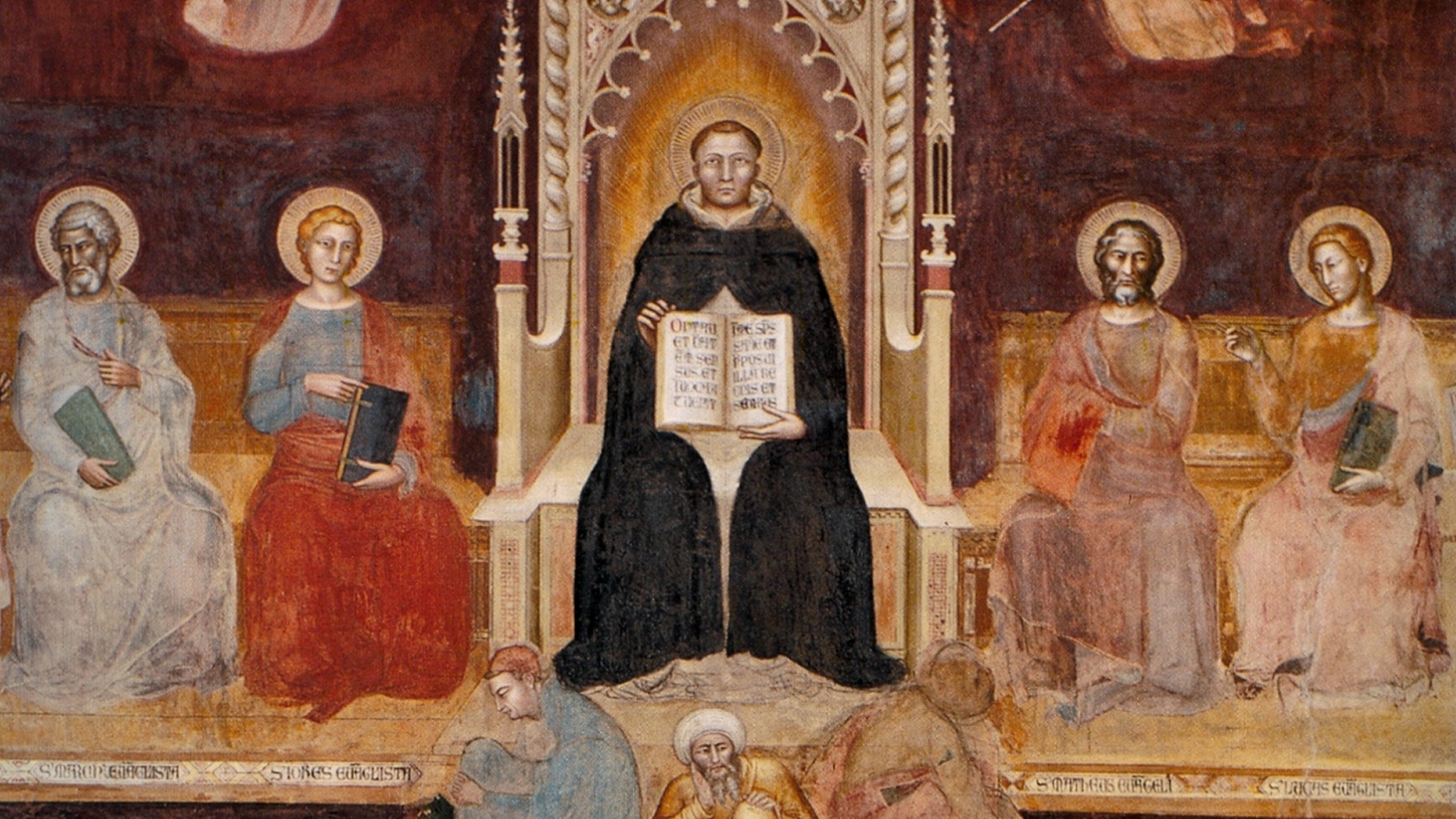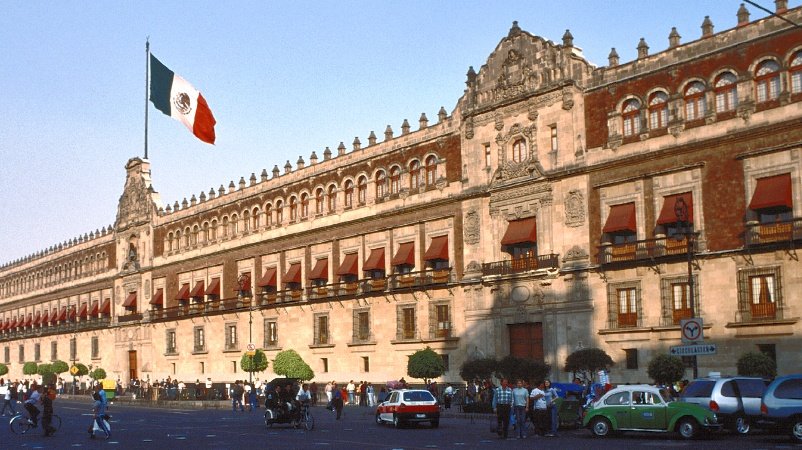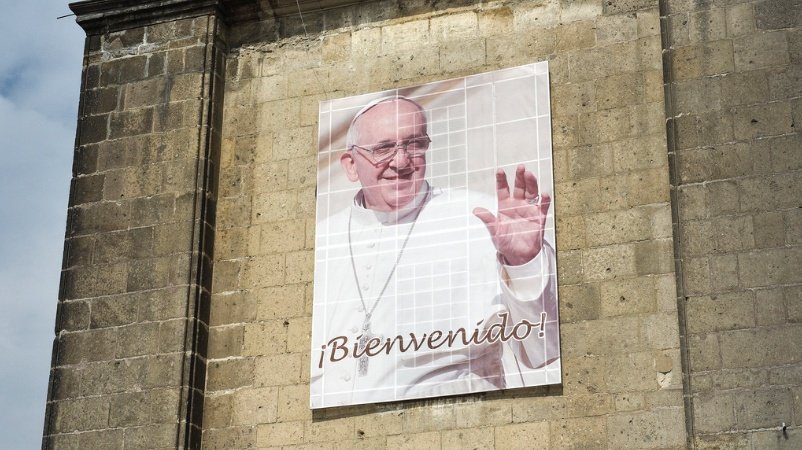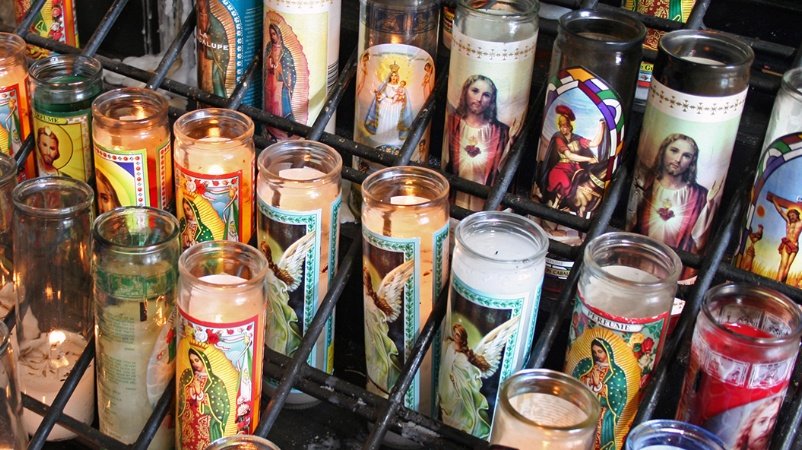
This article covers the influence of Catholicism in shaping the form and philosophy of government in Latin America, affecting how Latino students and their families think and feel about government. Tapping into that prior knowledge and experience, and prompting students to seek these connections between history, government, and their personal lives and cultural backgrounds is a unique and powerful way to engage and sustain the interest of young students.
Latin American experience: the Catholic influence on government
Largely due to Catholicism, self-rule and opposition to “big” government were not prominent features of the Latin American colonial experience. A principal influence on the development of government in New Spain was the government of old Spain, and to understand that government one has to go back to the Roman Empire and the Catholic Church as its official religion. As the late Mexican author Carlos Fuentes tells the story, Rome conquered and ruled Spain from about 200 B.C. to 400 A.C. Though the once great Roman Empire was in decline, Roman contributions to Spain left a legacy that can still be seen in Latin America, and by extension, in Latinos in America 2000 years later. A principal one is that along several dimensions the state was more important than the individual (Fuentes, 1992).
Explore government and world history activities with a free 30-day trial of Active Classroom.

The state, not private enterprise, was the engine of economic development
The state established great cities, connecting Spain’s interior to its coast with a system of roads and bridges, constructing aqueducts to carry water so cities could grow, and building theatres and other public buildings.
The state was administrator and judge
The state conducted a periodic census to ensure the collection of taxes, administered government and public institutions, protected roads with military forces to safeguard commerce and trade, and established the concept of statutory, or written law, different from customs or oral tradition.
The state was preacher and teacher
Business and government, conducted in Latin, gave Spain a sense of unity, and the Catholic Church, as the official religion of the Roman Empire, cemented this sense of community. The clergy, the military, and “the people” each developed a variation of Latin, and in time the mixture became the Spanish language.
Even through a subsequent period of 781 years of Muslim rule, from 711 to 1492, these Roman legacies remained, and then held to justify and carry out the Spanish conquest of the Americas. Economic growth and development, government institutions and law, and language and religion originated from and were administered by the state, not from the individual initiative of the people or private enterprise. The Laws of Burgos in the New World were the embodiment of this all-encompassing approach to the role of government in the lives of the people. Written ostensibly to protect the Indians, it declared, in writing and in a new language, how economics, government, and religion were to work in New Spain. The laws legitimized the authority of the Spanish crown in the Americas, even if their enforcement was respected by some but scoffed at by others. The conquest was then justified by its results—material wealth, law and order, and the salvation of souls.

Religion as an influence on government and democracy
Octavio Paz, the late Nobel Prize-winning Mexican poet and essayist, also explained how the development of democracy was stunted in Latin America, comparing it to the experience of the North American colonies (1979):
“A no less profound difference was the opposition between Catholic orthodoxy and Protestant reformism. In Mexico, Catholic orthodoxy…prevented examination and criticism. In New England, the communities were often made up of religious dissidents or, at least, of people who believed that the Scriptures should be read freely. On one side, orthodoxy, dogmatic philosophy, and the cult of authority. On the other, reading and free interpretation of the doctrine. Both societies were religious, but their religious attitudes were irreconcilable.” (p. 147)
That certainly sounds like the Catholic Church in which I grew up in the predominantly Mexican-American East Los Angeles of the 1970s, sitting through but not really listening to the Spanish-language mass and participating in some catechism and Bible study classes. Reading the Bible critically and coming up with one’s own interpretation of scripture were not part of Church practice.
Prevention of dissent debilitates strong democracy
What should be intriguing and relevant to a history/social studies teacher is the relationship Paz describes between the intellectual rigidity of the Catholic Church and the development of democracy and government. The Catholic tradition in Latin America largely prevented dissent from established authority, thus preventing the development of the skills of negotiation and deliberation regarding interpretation of doctrine and law. The trouble is that such skills are necessary to develop a strong democracy, and that is where Protestant Christianity succeeded more than Catholicism. It is true that dissent, disagreement, and deliberation have existed in the Catholic Church to this day, but they mostly occur among an elite minority— the few who attend Catholic schools and colleges, participate in serious Bible study, or become clergy. Most Catholic parishioners, specifically the Latino faithful living the legacy of Latin American Catholicism, do not develop skills of expressing dissent, and interpreting text and doctrine freely. Protestant Christian traditions, on the other hand, were historically characterized by robust dissent, freer interpretation of text, and a blurring of the division between the clergy and the parishioners, all of which helped develop a strong democracy when the attention of the faithful turned to the business of government.
Subscribe to the blog to get more articles like this one sent to your inbox each week.

Teaching government through religion
Thinking about religion and its effect on government is an intellectual resource on which teachers can draw to teach history/social science and government. Both instructors and students can make productive and revealing connections between their personal background and the subjects they must teach and learn. Of course, all students should eventually learn to work within the general framework and ethic of the United States—which emphasizes individual identity and work, independence, and self-reliance in matters of government and the reading and interpretation of text in the classroom. But it is important, especially for Latino students, that they realize early on that these values may be different from those of their home or ancestral culture.
An upcoming article will examine the ways that the Puritans shaped the form and philosophy of government in the United States.
References
Addison, A.C. (1911). The Romantic Story of the Mayflower Pilgrims and Its Place in the Life of To-day. Boston, MA: L.C. Page & Company.
Beale, D. (2000). The Mayflower Pilgrims: Roots of Puritan, Presbyterian, Congregationalist, and Baptist Heritage. Greenville, SC: Ambassador-Emerald International.
Constitutional Rights Foundation (2013). “Puritan Massachusetts: theocracy or democracy?” Bill of Rights in Action. Fall 2013, 29:1, pp. 1–5.
Fuentes, C. (1992). Chapter 3: The Reconquest of Spain, in The Buried Mirror: Reflections on Spain and the New World. Boston, MA: Houghton Mifflin Company.
Gaustad, E. and Schmidt, L. (2002). The Religious History of America: The Heart of the American Story from Colonial Times to Today, Revised. San Francisco, CA: HarperSanFrancisco, A Division of HarperCollinsPublishers.
Moguel, D.L. (2016). “How Do History and Religion Affect the Reading Habits and Practices of Latino Students?,” Occasional Papers, Social Studies Review, 4(3), 1–14, California Council for the Social Studies.
Paz, Octavio (1979). “Mexico and the United States,” translated by Rachel Phillips Belash. The New Yorker, 136–153, 55/31, 1779, September 17.
Pew Research Center (2016). “Democrats maintain edge as party ‘more concerned’ for Latinos, but views similar to 2012.” National Survey of Latinos. Washington, D.C.: Pew Charitable Trusts.
Explore world history activities with a free 30-day trial of Active Classroom
David L. Moguel is a professor of teacher education at the Michael D. Eisner College of Education, CSU Northridge. He holds degrees from Stanford University, the John F. Kennedy School of Government at Harvard University, and UCLA. David served as a John Gardner Public Service Fellow with Ramon C. Cortines, school superintendent, and as a presidential management intern for the U.S. Department of Education. He is the co-author, with Ron Sima, of Teach Me, I Dare You: Taking Up the Challenge of Teaching Social Studies, published in 2011 by the Social Studies School Service.
